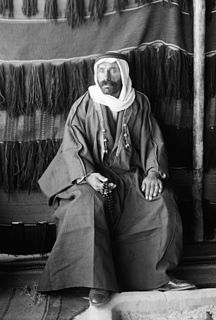Related Research Articles

Khoekhoen are the traditionally nomadic pastoralist indigenous population of southwestern Africa. They are often grouped with the hunter-gatherer San peoples. The designation "Khoekhoe" is actually a kare or praise address, not an ethnic endonym, but it has been used in the literature as an ethnic term for Khoe-speaking peoples of Southern Africa, particularly pastoralist groups, such as the !Ora, !Gona, Nama, Xiri and ǂNūkhoe nations.

Philip John Noel-Baker, Baron Noel-Baker,, born Philip John Baker, was a British politician, diplomat, academic, athlete, and renowned campaigner for disarmament. He carried the British team flag and won a silver medal for the 1500m at the 1920 Summer Olympics in Antwerp, and received the Nobel Peace Prize in 1959.

The Herero Wars were a series of colonial wars between the German Empire and the Herero people of German South West Africa. They took place between 1904 and 1908.

Philip Quincy Wright was an American political scientist based at the University of Chicago known for his pioneering work and expertise in international law, international relations, and security studies.

The Herero and Namaqua genocide or the Herero and Nama genocide was a campaign of ethnic extermination and collective punishment waged by the German Empire against the Herero (Ovaherero) and the Nama in German South West Africa. It was the first genocide of the 20th century, occurring between 1904 and 1908.

William George Arthur Ormsby-Gore, 4th Baron Harlech,, was a British Conservative politician and banker.

The Basters are a Southern African ethnic group descended from white European men and black African women, usually of Khoisan origin, but occasionally also enslaved women from the Cape, who resided in the Dutch Cape Colony in the 18th century. Since the second half of the 19th century, the Rehoboth Baster community has been concentrated in central Namibia, in and around the town of Rehoboth. Basters are closely related to Afrikaners, Cape Coloured and Griqua peoples of South Africa, with whom they share a language and culture.

Nama are an African ethnic group of South Africa, Namibia and Botswana. They traditionally speak the Nama language of the Khoe-Kwadi language family, although many Nama also speak Afrikaans. The Nama People are the largest group of the Khoikhoi people, most of whom have disappeared as a group, except for the Namas. Many of the Nama clans live in Central Namibia and the other smaller groups live in Namaqualand, which today straddles the Namibian border with South Africa.
William Emmanuel Rappard was a Swiss academic and diplomat.
The British Phosphate Commissioners (BPC) was a board of Australian, British, and New Zealand representatives who managed extraction of phosphate from Christmas Island, Nauru, and Banaba from 1920 until 1981.

Dantès Bellegarde was a Haitian historian and diplomat. He is best known for his works Histoire du Peuple Haïtien (1953), La Résistance Haïtienne (1937), Haïti et ses Problèmes (1943), and Pour une Haïti Heureuse (1928–1929).

Sultan al-Atrash,, commonly known as Sultan Pasha al-Atrash was a prominent Arab Druze leader, Syrian nationalist and Commander General of the Syrian Revolution (1925–27). He fought against the French. One of the most influential figures in Syrian and Druze history, he played a major role in deciding the destiny of Jabal al-Druze and of Syria in general.

Sir Christopher James Parr was a New Zealand lawyer and politician of the Reform Party. He was Mayor of Auckland, a Member of Parliament representing the Eden electorate, a Minister in the Reform Government, High Commissioner in London and a Member of the New Zealand Legislative Council.

George Louis Beer was a renowned American historian of the "Imperial school".

Germany–Namibia relations refers to the bilateral relationship of Germany and Namibia. This relationship is of particular importance as Namibia was colonized and occupied by the German Empire in the 19th century. There is also a community of approximately 30,000 German Namibians residing in Namibia today. Both nations are members of the United Nations.
The Bondelswarts Rebellion in 1922 was a controversial violent incident in South Africa's League of Nations Mandate of South West Africa, now Namibia.

The League of Nations was established with three main constitutional organs: the Assembly; the Council; the Permanent Secretariat. The two essential wings of the League were the Permanent Court of International Justice and the International Labour Organization.

Captain Hendrik Samuel Witbooi, Nama name: ǃGae-nûb ǃnagamâb ǃNansemab, was the sixth Kaptein of the ǀKhowesin, a subtribe of the Orlam, in the area of South-West Africa (SWA), today's Namibia. He was born in Gibeon; Hendrik Witbooi was his grandfather. He was selected to be the successor of his uncle David Witbooi who died in 1955.
The Red Nation is the main subtribe of the Nama people in Namibia and the oldest Nama group speaking Khoekhoegowab, the language often called Damara/Nama.
Raymond Leslie Buell (1896–1946) was an American social scientist. He was an instructor at Harvard University until 1927 when he became research director at the Foreign Policy Association. He later became president of the Foreign Policy Association. He influenced the work of Ralph Bunche.
References
Notes
- ↑ Big Swords, Jesuits, and Bondelswarts, John S. Lowry, p.64
- 1 2 3 Pedersen, Susan (2015). The Guardians: The League of Nations and the Crisis of Empire. Oxford University Press. pp. 114–115. doi:10.1093/acprof:oso/9780199570485.001.0001/acprof-9780199570485. ISBN 978-0-19-957048-5.
- ↑ Crawford, Neta (2002). "6 - Sacred Trust". Argument and Change in World Politics: Ethics, Decolonization and Humanitarian Intervention. Cambridge University Press.
Further reading
- Freislich, Richard (1964). The Last Tribal War. A History Of The Bondelswart Uprising. Struik.
- John S. Lowry, Big Swords, Jesuits, and Bondelswarts, 2015.
- Brian Wood, Namibia 1884-1984: Readings on Namibia's History and Society, Namibia Support Committee, United Nations Institute for Namibia, 1988
- Alfred T. Moleah, Namibia, the Struggle for Liberation, 1983
- Dean McCleland, John Dunn: Part 1 – Background to the Bondelswarts People & the SAC